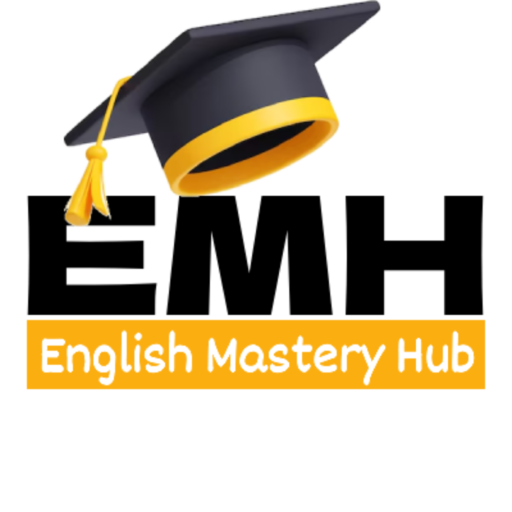
The Importance of Vocabulary Expansion in Language Learning: Methods to Build and Retain a Diverse Vocabulary
Article Level: A2
Explanation: This article highlights the importance of vocabulary in language learning and offers practical methods for expansion, including regular reading, using flashcards, speaking practice, learning words in groups, and daily writing. Consistent review helps retain new vocabulary effectively.
Read more: The Importance of Vocabulary Expansion in Language Learning: Methods to Build and Retain a Diverse VocabularyCommonly Used Words from the Article
-
Vocabulary /vəˈkæbjʊləri/ (noun): The words used in a particular language or by a person.
Expanding your vocabulary will help you communicate better. -
Flashcard /ˈflæʃkɑːd/ (noun): A card used to help learn or remember new information, usually with a word on one side and its meaning on the other.
I use flashcards to study new vocabulary. -
Retain /rɪˈteɪn/ (verb): To keep something in your memory or continue to hold on to it.
Reviewing words daily helps you retain them longer. -
Method /ˈmɛθəd/ (noun): A way of doing something, especially in a planned or organised way.
Using flashcards is an effective method for learning new words. -
Review /rɪˈvjuː/ (verb): To go over something again to check or improve it.
I review my vocabulary list every week to remember new words.
Audio File of the Article

The Importance of Vocabulary Expansion in Language Learning: Methods to Build and Retain a Diverse Vocabulary
Learning a new language can be exciting but challenging. One of the key areas of focus in language learning is expanding your vocabulary. Knowing more words allows you to express yourself better, understand others easily, and enjoy conversations or texts in the new language. This article will show why expanding vocabulary is important and provide some simple methods to help you build and retain new words.
Why Vocabulary Matters
Vocabulary is essential for communication. When you learn new words, you can describe things more clearly and understand what others are saying. The more words you know, the easier it becomes to read, listen, and speak in a language. For example, if you only know basic words, you might struggle to understand a story or have a conversation. However, when you expand your vocabulary, you can understand more complex ideas and express your thoughts more easily.
Simple Methods to Build Vocabulary
1.Reading Regularly
One of the best ways to learn new words is by reading. Try reading short stories, articles, or even subtitles in your target language. As you read, you will come across new words. Write them down and check their meanings later. This helps you to build a strong vocabulary and understand how words are used in context.
2.Use Flashcards
Flashcards are an easy and fun way to learn new words. You can write the word on one side of the card and its meaning on the other. Review these cards regularly to remember the words. There are also many apps that can help you create and review flashcards on your phone.
3.Practice Speaking
It is important to use the words you learn in conversation. Try to use new words when speaking with others or even when thinking to yourself. The more you practise, the easier it will be to remember the words. This is a great way to retain new vocabulary.
4.Learn Words in Groups
Instead of learning random words, try learning them in groups or categories. For example, learn all the words related to food, travel, or emotions at once. This makes it easier to remember the words because they are connected by a common theme.
5.Write Daily
Writing helps to reinforce what you learn. Keep a journal or write short paragraphs using the new words you have learned. This practice will help you remember words and understand how to use them in sentences.
Retaining Vocabulary
Building vocabulary is one part of the process; retaining it is another. To remember the words you have learned, it is important to review them regularly. Repetition is key in language learning. Try to review your flashcards, re-read articles, or use the words in conversation frequently. This will help the words stay in your memory for a long time.
Conclusion
Expanding your vocabulary is crucial for improving your language skills. By reading, practising, using flashcards, and reviewing regularly, you can build and retain a diverse vocabulary. Start today, and you’ll soon see the benefits of knowing more words in your language learning journey.

Grammar Notes
In this article, several grammar structures were used, such as:
- Present Simple Tense :“Vocabulary is essential for communication.” This is used to describe general truths or facts.
-
Imperative Form: “Try reading short stories…” Used to give instructions or advice.
-
Modal Verbs: “You can write the word on one side…” “Can” is used to express ability or possibility.
Quick Grammar Lesson:Present Simple Tense
Present Simple Tense is commonly used to describe habits, facts, and general truths. For example, “He reads every day.” It is formed by using the base form of the verb for most subjects, with an added “-s” for third-person singular subjects like “he” or “she.”

Five Questions Based on the Article
-
Why is expanding vocabulary important for communication?
-
How can reading regularly help you learn new words?
-
What are flashcards, and how do they help with vocabulary building?
-
Why is practising speaking important for retaining vocabulary?
-
What are some ways to retain new words in your memory?

Five Questions Based on the Article We’d love to hear your thoughts! Join the conversation by leaving a comment below. Sharing your insights, questions, or experiences can help you connect with others in our English learning community. It’s a great way to practice your English skills, engage with like-minded individuals, and improve together. Don’t be shy—jump in and let’s keep the discussion going!

 EnglishMasteryHub
EnglishMasteryHub